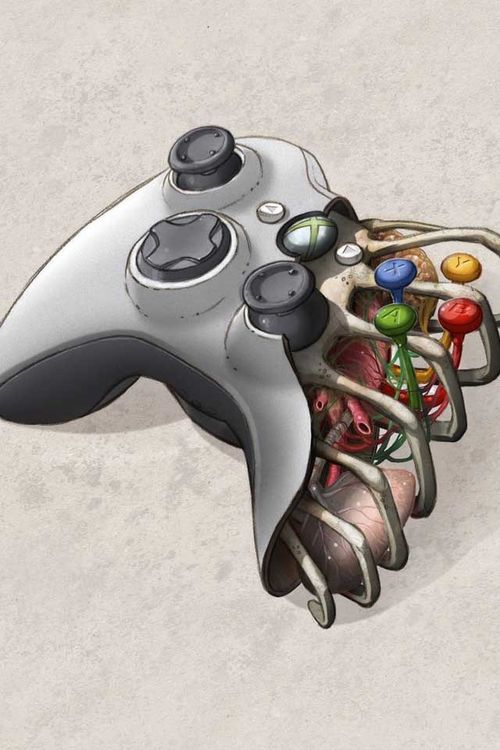Thugnotes. “Are We Living in a Simulation? – 8-Bit Philosophy.” YouTube. YouTube, 31 Jan. 2017. Web. 10 May 2017.
Author: linley
The Internet’s Art-ness
Nerdwriter1 aka Evan Puschak. Or Evan Puschak aka Nerdwriter1
(which one is it?)
Anyway, this video is very interesting. It looks at the internet’s art-ness.
Nerdwriter1. “How Art Can Transform The Internet.” YouTube. YouTube, 06 Jan. 2016. Web. 10 May 2017.
Cory Godbey: La Cadeau du Temps or “The Gift of Time”
Hey Mike, this short film might have an implicit, underlying meaning:
The explosion which gave birth to the mystical woman, who then gave the man the potion might be a symbol of… the internet?? HAHA. I don’t know.
He then lived through periods of time, continually growing old, and continually drinking the potion… maintaining his youth, but in a unnatural way.
He sees many things, and accumulates knowledge. A result of him hoarding the potion to himself, is utter loneliness.
He eventually returns to the place where he started. Having lived for all that time, having travelled throughout time itself, having defeated the deity of time, it was all to come back to where he was before. And as a result, it is as if no time has passed at all.
At the end, he comes to the fountain of knowledge itself, where he finds massive amounts of people all around it, swimming in it, drinking from it.
He goes to fill up the glass bottle, trying to take the fountain’s water for himself, and it explodes. The potion then is given to everyone, making everyone younger.
But the old man does not care to hoard his potion for any longer. He’s already seen it all. Plus, I bet he’s pretty sick and tired of living by now.
This film could be an allegory for knowledge, and how we pine for it. And how the “digital” allows us to slip in and out of time space, so to speak. Time passes by the hours, for we also stop time in a way, in that no time passes at all. We spend our lives in front of the screen, a screen that presents to us all these ever growing, ever advancing technologies, new found knowledge, new found facts, new found realities. But at the end of the day, does time really pass us by? Or are we inevitably stagnant as we grow, get younger (in that we our subject to new knowledge, and subsequently are reborn), grow, get younger, etc?
Godbey, Cory. “Le Cadeau du Temps.” Vimeo. N.p., May 2011. Web. 10 May 2017. <https://vimeo.com/4621529>
to be continued.
Film Time: HyperNormalisation
Curtis, Adam. “HyperNormalisation.” Vimeo, uploaded by Adam Bhala Lough, January 2017. https://vimeo.com/191817381
The Nature of Video Games
In a game, you are in control of your character:

which direction they go,
who they talk to,
what actions you choose for them.
There is a sense of controlling your character or avatar as if they are a puppet on a string, and you their master.
But by controlling them, they in turn are embodying you as the player and immersing you in the game with them.
But…
Are you truly in control?

https://www.wired.com/2016/06/inside-review/
Kohler, Chris. “Inside‘s Tense Horror Is a Worthy Successor to Limbo.” Wired. Conde Nast, 28 June 2016. Web. May 2017. <https://www.wired.com/2016/06/inside-review/>
Tamburro, Paul. “Inside’s Ending Explained: Our Theory On The Limbo Sequel’s Brain-Bending Conclusion”. CraveOnline. July 1, 2016. Web. May 2017. <www.craveonline.ca/entertainment/1005759-insides-ending-explained-theory-limbo-sequels-brain-bending-conclusion>
http://www.telegraph.co.uk/gaming/what-to-play/playdeads-inside-review/
Hoggins, Tom. “Playdead’s Inside is fiercely intelligent, exquisitely grotesque – and one of the best video games of the year .” The Telegraph. Telegraph Media Group, 30 June 2016. Web. 10 May 2017.
More so, there is some discussion among fans that the boy himself (and so too along with the player) is also being controlled to the same level as the zombified humans surrounding him: that the gamer isn’t in control of him at all, but that the character’s fate, his inevitable destiny within the game, is in fact, inevitable. No matter what the gamer does with the character, no matter where the gamer takes the character, it is pre-destined that he will end up exactly where the game itself wants him.
to be continued.
